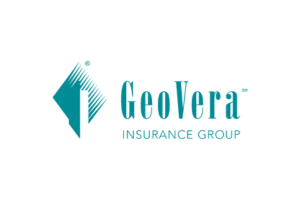The Ultimate Guide to Small Business Insurance: Essential Coverage for Your Peace of Mind

Running a small business comes with many rewards, but it also brings unique challenges and risks. Small business insurance is essential to protect your company from unexpected events like property damage, lawsuits, or accidents. In this guide, we’ll cover everything you need to know about small business insurance, including the types of coverage available, why it matters, and how to choose the right policy for your needs. Understanding and investing in the right insurance can provide long-term peace of mind, so your focus stays on growing your business.
Why Small Business Insurance Matters
Whether you’re a startup or an established small business, the risks associated with running a company are real. Without proper insurance coverage, even a minor accident could lead to significant financial loss. Here are some key reasons why small business insurance is vital:
- Protects Against Liability: Lawsuits, whether from customers or employees, can be costly. Liability insurance helps cover legal fees and settlement costs.
- Safeguards Physical Assets: From buildings to equipment, insurance can cover damages due to fire, theft, vandalism, or natural disasters.
- Ensures Business Continuity: Some insurance policies provide income protection if your business has to shut down temporarily due to a covered event, helping you avoid income loss.
- Builds Credibility: Many clients or partners view insured businesses as more reliable, which can give you a competitive advantage.
Types of Small Business Insurance Coverage
Different types of coverage provide various layers of protection. Here are the essential types of insurance every small business should consider:
1. General Liability Insurance
General liability insurance covers claims of bodily injury, property damage, and personal injury like slander or libel. This is one of the most critical types of coverage for any business, as it protects you against common risks faced by most industries.
Example: If a customer slips and falls at your location, general liability insurance could cover their medical expenses and your legal fees.
2. Commercial Property Insurance
If your business owns or rents physical space, property insurance can protect your assets from losses due to fire, theft, and certain natural disasters. It typically covers the building itself, as well as equipment, furniture, and inventory.
Example: In the event of a fire at your retail store, property insurance could help replace damaged merchandise and repair the structure.
3. Business Interruption Insurance
If an unexpected event forces you to temporarily close your business, business interruption insurance can replace lost income during the shutdown period. This can be a crucial safety net for small businesses with limited cash flow.
Example: After a natural disaster, business interruption insurance may cover lost income, rent payments, and other necessary expenses while you rebuild.
4. Workers' Compensation Insurance
Most states require businesses with employees to have workers' compensation insurance. This type of coverage helps cover medical expenses and lost wages for employees who are injured on the job.
Example: If an employee is injured while operating equipment, workers' compensation can help cover their medical treatment and any missed workdays.
5. Professional Liability Insurance
Also known as errors and omissions (E&O) insurance, this policy protects against claims of negligence or mistakes in the professional services you provide. It’s particularly important for businesses offering consulting, accounting, legal, or other advisory services.
Example: A consultant who inadvertently provides incorrect advice that leads to client losses could rely on professional liability insurance to cover legal fees and potential settlements.
6. Commercial Auto Insurance
If you or your employees use a vehicle for business purposes, commercial auto insurance is essential. This policy covers accidents and other incidents that may occur while on business-related travel.
Example: A delivery driver involved in an accident could rely on commercial auto insurance to cover repairs and medical expenses.
7. Cyber Liability Insurance
For businesses that store sensitive customer data, cyber liability insurance can be a valuable policy. It covers data breaches, cyberattacks, and the associated costs of notifying affected clients, legal expenses, and public relations efforts.
Example: In the event of a cyberattack on a small e-commerce store, cyber liability insurance can help cover expenses related to resolving the breach and protecting customers' information.
Choosing the Right Small Business Insurance Policy
Every business is unique, so selecting the right policy depends on your specific needs. Here are some tips to help you find the best small business insurance:
- Assess Your Risks: Consider the industry you’re in and identify the most likely risks you may face. A consulting firm will have different risks compared to a restaurant.
- Evaluate Policy Bundles: Many insurers offer bundled policies known as Business Owner Policies (BOPs) that combine general liability and property insurance at a lower rate.
- Consult an Insurance Expert: An insurance broker or agent can help you understand which policies best suit your business.
- Review and Adjust Coverage Regularly: As your business grows, your insurance needs may change. Regularly reviewing your policies ensures you maintain adequate protection.
The Cost of Small Business Insurance
The cost of small business insurance varies depending on the type of business, location, size, and specific risks. Generally, you can expect to pay between $500 and $2,000 per year for basic coverage. While premiums may seem high, they’re typically much less than the potential financial loss from an uninsured incident.
Factors Affecting Cost:
- Business type and industry
- Business location and size
- Number of employees
- Coverage types and limits
Conclusion
Small business insurance isn’t just an expense—it’s an investment in the stability and longevity of your business. Having the right coverage allows you to focus on growth without constantly worrying about unexpected events. By understanding the different types of coverage and selecting policies tailored to your needs, you can protect your assets, your employees, and your peace of mind. For more personalized guidance, reach out to an experienced insurance agent who can help you navigate your options and find the best protection for your small business.
This SEO-optimized blog post on small business insurance is packed with keywords, practical advice, and actionable insights that help readers understand the value of insurance and guide them toward finding the best policy. It’s a valuable resource for small business owners who want to protect their assets while building a successful company.











